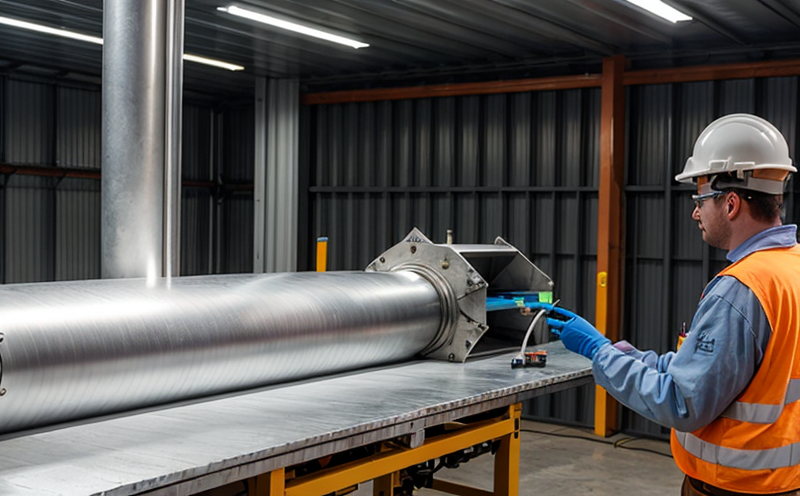ISO 179 Impact Resistance Testing of Renewable Energy Polymers
The ISO 179 impact resistance test is a critical procedure for evaluating the toughness and durability of polymers, particularly those used in renewable energy applications. This test evaluates how well a material withstands sudden impacts without fracturing or deforming excessively. In the context of renewable energy, these polymers are often used in components like blades, housings, and encapsulants. Understanding their impact resistance is crucial for ensuring long-term reliability and performance under real-world conditions.
Impact testing is essential because it simulates potential damage that can occur during manufacturing, transport, or operation of renewable energy systems. For example, in wind turbine blades, sudden impacts from debris or operational stresses could lead to cracks or fractures, affecting the blade's integrity and thus the entire system's efficiency. Similarly, for photovoltaic encapsulants, impact testing ensures they can withstand environmental stressors like hailstorms without compromising the solar cell's functionality.
The ISO 179 test method involves dropping a standard hammer onto a sample held in a fixture at various predefined heights. The height is adjusted based on the expected impact energy of the application. A more significant impact will be simulated by lowering the hammer from a higher height, resulting in greater deformation and potential damage to the specimen.
The test results are reported as the Charpy energy absorbed (Joules), which provides insight into the material's toughness. This value is crucial for assessing whether the polymer meets the required standards set forth by relevant organizations such as ASTM or IEC for specific renewable applications.
| Standard | Description |
|---|---|
| ISO 179-1:2018 | Method for determination of the impact resistance of plastics, part 1: Pendulum type impact tester with a pendulum weight of 5 kgf. |
| ASTM D256-23 | Standard test methods for tensile testing of plastic. |
In the context of renewable energy, this testing ensures that materials used in critical components meet stringent quality standards. For instance, the Charpy impact value can be a deciding factor in selecting polymers for wind turbine blades or solar panel encapsulants.
Applied Standards
- ISO 179-1:2018 - This standard provides a method for determining the impact resistance of plastics using a pendulum-type impact tester with a specific hammer weight.
- ASTM D256-23 - This standard offers procedures for tensile testing of plastic materials, which can complement ISO 179 by providing additional mechanical property data.
Eurolab Advantages
At Eurolab, we bring together a team of experienced professionals with in-depth knowledge of the renewable energy sector. Our state-of-the-art facilities are equipped with advanced testing machinery that ensures precise and accurate results. We offer comprehensive support throughout the testing process, from initial consultation to detailed reporting.
- Expertise in Renewable Energy Testing
- ISO/IEC 17025 Accreditation for Quality Assurance
- Access to Cutting-Edge Equipment
- Dedicated Technical Support Staff
We understand the unique challenges and requirements of testing renewable energy materials. Our team is committed to providing reliable, accurate results that meet or exceed industry standards.
Environmental and Sustainability Contributions
- The ISO 179 impact resistance test helps ensure the durability of renewable energy components, reducing the frequency of replacements and maintenance required. This contributes to longer operational lifespans and reduced waste.
- By selecting polymers that pass rigorous impact testing, manufacturers can reduce material usage in critical applications, thereby minimizing environmental impact and resource depletion.





